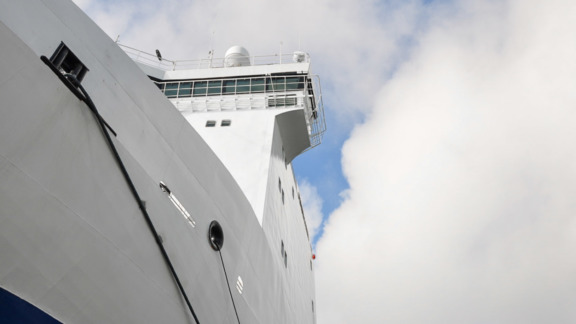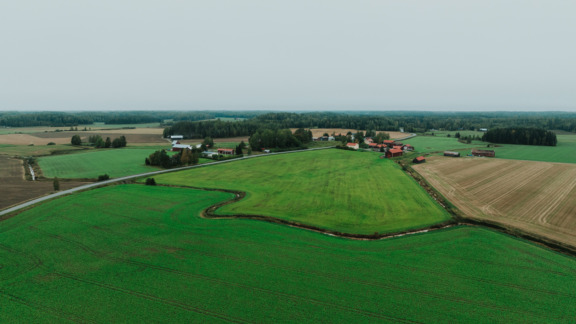Gasum’s Baltic Sea commitment to Ship Waste Action: biogas from cargo ship’s waste waters
There are approximately 2,000 cargo ships operating in the Baltic Sea every moment. Approximately 25,000 seafarers sail on the ships. It is legal to discharge greywater, and sewage into the Baltic Sea. How could the wastewater be utilised in circular economy? How much bioenergy could be produced from cargo ship generated wastewaters?

Gasum aims at finding out the biogas potential in wastewaters discharged in ports. Under Gasum’s Baltic Sea Commitment, the company is participating in BSAG’s Ship Waste Action, which was launched in the port of HaminaKotka last autumn and aims to reduce nutrient loading in the Baltic Sea in conjunction with shipping industry.
Gasum commits to receiving ship generated wastewaters and biowaste as a feedstock for biogas. Biogas is a renewable fuel that is also suitable when liquefied for use in maritime transport. Besides biogas, the process produces recycled nutrients that can replace synthetic and virgin nutrient products in agriculture and industry. The circular economy of energy and nutrients supports security of supply and reduces dependence on imported raw materials.
”Gasum is a Nordic energy company and a strong circular economy actor. For us, the Ship Waste Action is a great opportunity to promote circular economy solutions and to work for the good of the Baltic Sea. Cooperation with other actors is important to discharge ship-generated waste into a port from where it can be recovered for use. Besides renewable energy production, we want to promote the agricultural use of recycled nutrients created in the biogas process. We are using carbon footprints to assess the climate impacts of nutrient products in the project,” says Elina Saarivuori, Sustainability Manager, Gasum.
“Whereas our priority is to get wastewaters generated by cargo ships discharged on land instead of into the Baltic Sea, that is just the first step. Since the very beginning of the Ship Waste Action, it has been important to us to find a use for wastewaters in the circular economy. Producing biogas from wastewaters is an excellent solution as far as the Baltic Sea is concerned,” commends Elisa Mikkolainen, Project Director at Baltic Sea Action Group.
Ship Waste Action is cooperation where cargo ship sewage is used for circular economy purposes. Other partners in the project besides Gasum are the Port of HaminaKotka, Kymen Vesi wastewater treatment plant, Autoyhtymä Vuorinen, shipping companies Meriaura and RABN, Essberger & Stolt Tankers, Utkilen and Maersk, as well as shipbrokers C&C Port Agency, Dahlberg’s Agency, and GAC Finland. Operations are currently on going in the port of Rauma and being expanded to other ports also.



